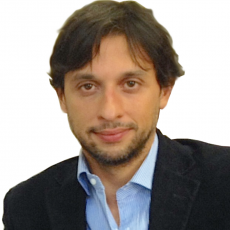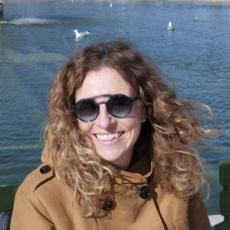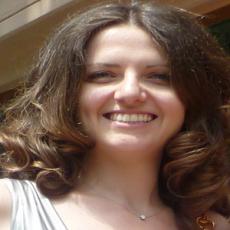Objectives
General Objective
The aim of the course is to analyze in depth mass communication theories and the new forms of communication developed in digital platforms, with particular attention to the Social Network Sites and to the convergence process of traditional media with IP based technologies.
Specific Objectives.
Knowledge and understanding.
The course aims at analyzing and developing mastery over the vocabulary and theoretical models of mass communications, the evolution of the internet and digital platforms (publishing, distribution, social networking), the user experience that characterizes non-linear vision of audio-video content. The acquired knowledge offers a strong base of reference for understanding the transformations of communication in the phase of media convergence.
Applying knowledge and understanding.
Moreover the course aims at developing specific skills with respect to social media to apply in the different fields of communication.
Making judgements.
Attention will be dedicated, through specific discussion moments inside the lessons, also to the economic, political and social impacts produced by the ubiquitous presence of media platforms in everyday life, with the aim to develop critical distance and autonomy of judgment with respect to relevant topics that arouse social alarm.
Communication skills.
The course aims at promoting the ability to communicate information, ideas and knowledges through strong interaction with professors and other participants during lessons and the oral exam;
Learning skills.
The course aims at promoting the learning skills that are necessary to continue to undertake further study about the evolution of the digital media with a good degree of autonomy. In fact the skills acquired are preparatory to the project work students will perform in the MSc programs of the Department and ensure adequate autonomy in the professional experience.
Channels
1
 GIOVANNI CIOFALO Teacher profile
GIOVANNI CIOFALO Teacher profile
Programme
The first part of the course focuses on the theoretical framework of the communication theories. From the hypodermic theory to the theory of the dependence from media, the aim is to verify the validity of the theoretical and conceptual frameworks of the past in the light of the new medial landscape and of the socio-cultural and technological transformations of the current society of information. The second part of the course focuses more specifically on the new media, analyses the technological and social transformations linked to the diffusion of the Internet (from web 1.0 to the Internet of the things) and focuses its attention on the relation between social media and politics.
Finally, the last part of the course will provide a slice of issues and areas that will be explored in the near future: journalism studies, social media marketing tools, television and audience studies.
The teaching model includes lectures, intercattedra seminars, use of telematic and interactive supports that will facilitate the acquisition and deepening of the knowledge necessary to successfully pass the evaluation test. The training objectives will be achieved through the continuous peer comparison with the colleagues of the course and with the teachers in order to develop skills in team work and problem solving.
The course will be organized in the following units:
- Media Theories (36 hours)
- Digital media (24 hours)
- Data journalism (6 hours)
- Social media (6 hours)
Adopted texts
The textbooks may be subject to variations in consideration of any new editorial releases, differences between attending and not attending. Any changes to the program will be promptly communicated.
1. G. Boccia Artieri, S.Bentivegna, Le teorie delle comunicazioni di massa e la sfida digitale, Laterza, Roma-Bari, 2019
2. A book to choose between:
- G. Ciofalo (a cura di), Elihu Katz. I media studies tra passato e futuro - NUOVA EDIZIONE AGGIORNATA, Roma, Armando, in press.
- A. Stella, R., Riva, C., Scarcelli, M., Drusian, M. Sociologia dei New Media, Utet Università , Milano, 2018.
3. A book to choose between:
- M. Antenore, S. Splendore (a cura di), Data Journalism. Guida essenziale al giornalismo fatto con i numeri, Milano, Mondadori, 2017.
- G. Balbi, P. Magaudda (a cura di), Fallimenti digitali: un'archeologia dei "nuovi" media, Unicopli, Milano, 2018.
- A. Greenfield, Tecnologie radicali. l progetto della vita quotidiana, Einaudi, Torino, 2017.
- J. van Dijck, T. Poell, M. de Waal, Platform Society. Valori pubblici e società connessa, Guerini Scientifica, Milano, 2019
- G. Maddalena, G.,Gili, Chi ha paura della post-verità? Effetti collaterali di una parabola culturale, Marietti, 2017.
N.B. Other books could be indicated during the course.
Bibliography
Other books could be indicated during the course.
Prerequisites
There are no prerequisites.
Frequency modes
There is no obligation to attend.
Exam modes
The exams will take place according to the didactic calendar of the Department, trough an oral interview.
Like the lessons, if the situation makes it necessary, the exams will take place remotely.
For non-attending students there is a single final oral exam.
For attending students attending the project works (project evaluation / ongoing evaluation) will constitute a basis for grading to which will be added the evaluation of the final oral exam.
| Exam reservation date start | Exam reservation date end | Exam date |
|---|---|---|
| 01/12/2021 | 04/01/2022 | 10/01/2022 |
| 17/12/2021 | 17/01/2022 | 24/01/2022 |
| 01/01/2022 | 01/02/2022 | 07/02/2022 |
| 01/03/2022 | 01/04/2022 | 06/04/2022 |
| 01/05/2022 | 01/06/2022 | 06/06/2022 |
| 10/05/2022 | 17/06/2022 | 23/06/2022 |
| 01/06/2022 | 05/07/2022 | 11/07/2022 |
| 01/08/2022 | 07/09/2022 | 13/09/2022 |
| 10/09/2022 | 14/10/2022 | 20/10/2022 |
| 14/11/2022 | 17/11/2022 | 18/11/2022 |
| 01/12/2022 | 04/01/2023 | 09/01/2023 |
 BARBARA CARFAGNA
BARBARA CARFAGNA
2
 MARZIA ANTENORE Teacher profile
MARZIA ANTENORE Teacher profile
Programme
The first part of the course focuses on the theoretical framework of the communication theories. From the hypodermic theory to the theory of the dependence from media, the aim is to verify the validity of the theoretical and conceptual frameworks of the past in the light of the new medial landscape and of the socio-cultural and technological transformations of the current society of information. The second part of the course focuses more specifically on the new media, analyses the technological and social transformations linked to the diffusion of the Internet (from web 1.0 to the Internet of the things) and focuses its attention on the relation between social media and politics.
Finally, the last part of the course will provide a slice of issues and areas that will be explored in the near future: journalism studies, social media marketing tools, television and audience studies.
Adopted texts
1. G. Boccia Artieri, S.Bentivegna, Le teorie delle comunicazioni di massa e la sfida digitale, Laterza, Roma-Bari, 2019
2. A book to choose between:
- G. Ciofalo (a cura di), Elihu Katz. I media studies tra passato e futuro - NUOVA EDIZIONE AGGIORNATA, Roma, Armando, in press.
- A. Stella, R., Riva, C., Scarcelli, M., Drusian, M. Sociologia dei New Media, Utet Università , Milano, 2018.
3. A book to choose between:
- M. Antenore, S. Splendore (a cura di), Data Journalism. Guida essenziale al giornalismo fatto con i numeri, Milano, Mondadori, 2017.
- G. Balbi, P. Magaudda (a cura di), Fallimenti digitali: un'archeologia dei "nuovi" media, Unicopli, Milano, 2018.
- A. Greenfield, Tecnologie radicali. l progetto della vita quotidiana, Einaudi, Torino, 2017.
- J. van Dijck, T. Poell, M. de Waal, Platform Society. Valori pubblici e società connessa, Guerini Scientifica, Milano, 2019
The volumes could be replaced with other texts that will be communicated at the beginning of the course.
Prerequisites
None
Exam modes
In order to support the students in the gradual acquisition of the basic skills and vocabulary of the discipline, a midterm exam could be organized to assess the knowledge acquired in the different modules of the course. Details will be provided at the beginning of the course.
Oral exam about topics of the textbooks and explained during the course.
| Exam reservation date start | Exam reservation date end | Exam date |
|---|---|---|
| 17/11/2020 | 27/12/2021 | 11/01/2022 |
| 10/11/2021 | 15/01/2022 | 25/01/2022 |
| 10/11/2021 | 29/01/2022 | 08/02/2022 |
| 10/11/2021 | 28/03/2022 | 07/04/2022 |
| 10/11/2021 | 28/05/2022 | 07/06/2022 |
| 10/11/2021 | 13/06/2022 | 23/06/2022 |
| 10/11/2021 | 01/07/2022 | 11/07/2022 |
| 10/11/2021 | 25/08/2022 | 05/09/2022 |
| 10/11/2021 | 10/10/2022 | 20/10/2022 |
| 10/11/2021 | 01/01/2023 | 10/01/2023 |
 ELENA VALENTINI Teacher profile
ELENA VALENTINI Teacher profile
Programme
The first part of the course focuses on the conceptual framework of communication theories. Starting from hypodermic theory to arrive to the theory of dependence on the media, the objective is to verify the resilience of the theoretical and conceptual frameworks of the past in the light of the changed media landscape and the socio-cultural and technological transformations of the current information society.
The second part of the course, dedicated more specifically to digital media, analyses the technological and social transformations related to Internet (from web 1.0 to the Internet of things), also dealing with topics which will explained in other courses (such us journalism studies and platform society).
Adopted texts
1. G. Boccia Artieri, S.Bentivegna, Le teorie delle comunicazioni di massa e la sfida digitale, Laterza, Roma-Bari, 2019
2. A book to choose between:
- G. Ciofalo (a cura di), Elihu Katz. I media studies tra passato e futuro - NUOVA EDIZIONE AGGIORNATA, Roma, Armando, in press.
- A. Stella, R., Riva, C., Scarcelli, M., Drusian, M. Sociologia dei New Media, Utet Università , Milano, 2018.
3. A book to choose between:
- M. Antenore, S. Splendore (a cura di), Data Journalism. Guida essenziale al giornalismo fatto con i numeri, Milano, Mondadori, 2017.
- G. Balbi, P. Magaudda (a cura di), Fallimenti digitali: un'archeologia dei "nuovi" media, Unicopli, Milano, 2018.
- A. Greenfield, Tecnologie radicali. l progetto della vita quotidiana, Einaudi, Torino, 2017.
- J. van Dijck, T. Poell, M. de Waal, Platform Society. Valori pubblici e società connessa, Guerini Scientifica, Milano, 2019
The volumes could be replaced with other texts that will be communicated at the beginning of the course.
Prerequisites
There are no requirements.
Exam modes
In order to support the students in the gradual acquisition of the basic skills and vocabulary of the discipline, a midterm exam could be organized to assess the knowledge acquired in the different modules of the course. Details will be provided at the beginning of the course.
Oral exam about topics of the textbooks and explained during the course.
- Academic year: 2021/2022
- Curriculum: Curriculum unico
- Year: Second year
- Semester: Second semester
- SSD: SPS/08
- CFU: 9
- Attività formative di base
- Ambito disciplinare: Discipline sociali e mediologiche
- Lecture (Hours): 72
- CFU: 9
- SSD: SPS/08
